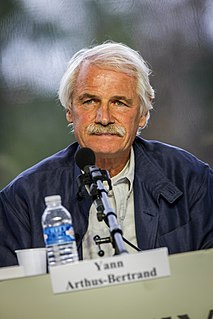A Quote by Caroline Lucas
Other countries are developing well-being economies - we should do the same. That is the way to create a society which would stand the test of time - for everyone.
Related Quotes
Exporters monitor economic and political policies to the developing world, but the consequences of that have been to make developing countries far more sensitive to the constant fluctuations. Developing countries are not always allowed to support their farmers in the same way as the U.S. or Europe is. They're not allowed to have tariff barriers. They're forced, more or less, to shrink their social programs. The very poorest people have fewer and fewer entitlements. The consequence of this has been that there's been a chronic increase in the vulnerability of those economies to price shocks.
There should be perfect freedom, legal and social, to do the action and stand the consequences. It would be a great misunderstanding of this doctrine to suppose that it is one of selfish indifference, which pretends that human beings have no business with each other's conduct in life, and that they should not concern themselves about the well-doing or well-being of one another, unless their own interest is involved.
One of the greatest concerns that I had when I became President was the vast array of nuclear weapons in the arsenals of the United States and the Soviet Union and a few other countries, and also the great proliferation of conventional weapons, non-nuclear weapons, particularly as a tremendous burden on the economies of developing or very poor countries.
The higher education system in these countries (US, Korea etc) has become like a theatre in which some people decided to stand to get a better view, promoting the others behind them to stand. Once enough people stand, everyone has to stand, which means no one is getting a better view, while everyone has become more uncomfortable.
Many countries which are no longer able to afford their public health systems, which have made certain promises within their countries to purchase from free market or from other economies, are approaching us seeking help with the supply of generic drugs, which is opening a very big room of opportunity for us.
Like every man who appears at an epoch which is historical and rendered famous by his works, Jesus Christ has a history, a history which the church and the world possess, and which, surrounded by countless memorials, has at least the same authenticity as any other history formed in the same countries, amidst the same peoples and in the same times. As, then, if I would study the lives of Brutus and Cassius, I should calmly open Plutarch, I open the Gospel to study Jesus Christ, and I do so with the same composure.
If a poet has any obligation toward society, it is to write well. Being in the minority, he has no other choice. Failing this duty, he sinks into oblivion. Society, on the other hand, has no obligation toward the poet. A majority by definition, society thinks of itself as having other options than reading verses, no matter how well written. Its failure to do so results in its sinking to that level of locution at which society falls easy prey to a demagogue or a tyrant. This is society's own equivalent of oblivion.
Some remain great cities, but they shouldn't stand still. They should move in the direction of a knowledge-oriented society. Most cities have to do something to draw attention to themselves and make their particular assets visible on the international radar. I'm not talking about developing countries, but about the United States and Europe.


































